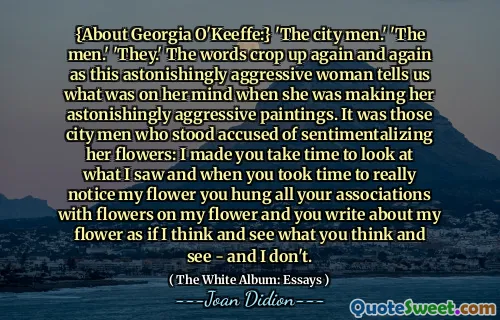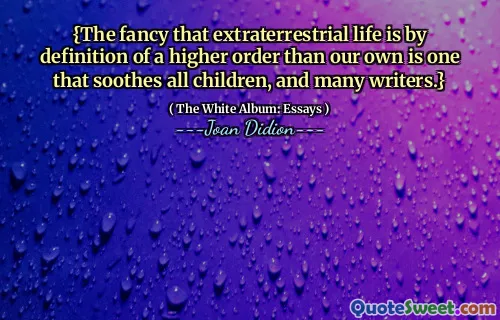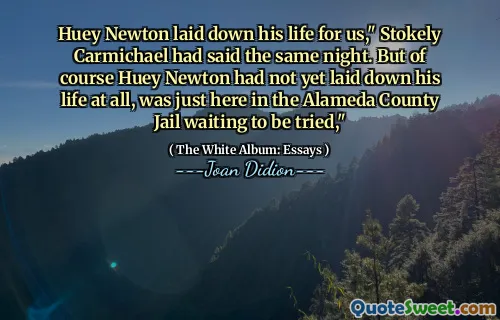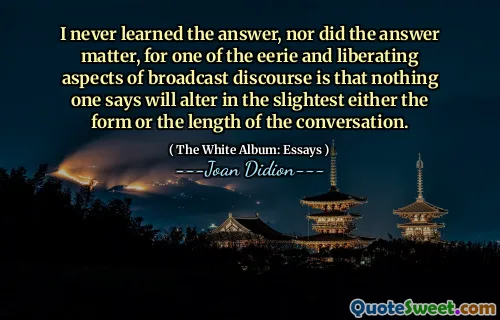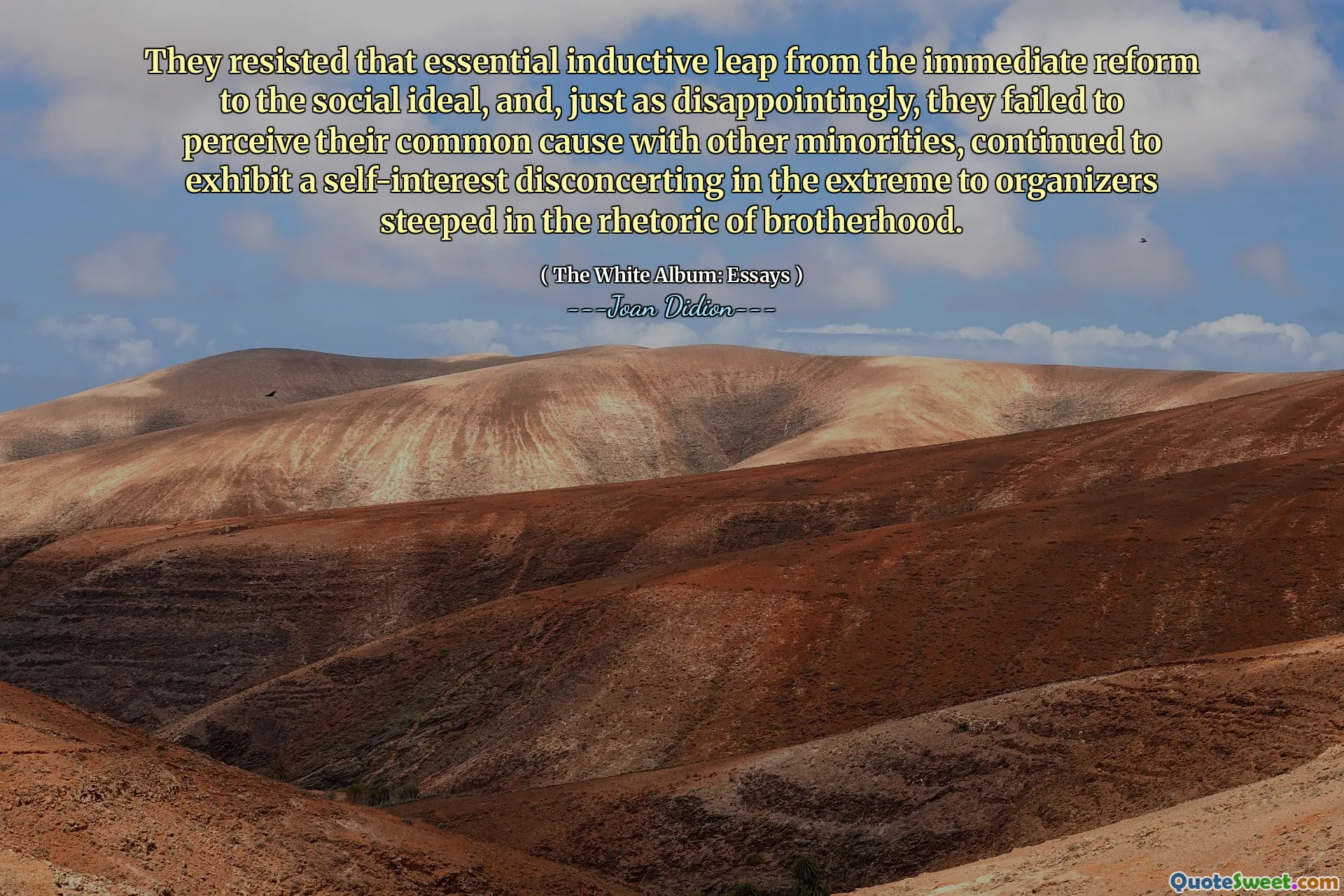
They resisted that essential inductive leap from the immediate reform to the social ideal, and, just as disappointingly, they failed to perceive their common cause with other minorities, continued to exhibit a self-interest disconcerting in the extreme to organizers steeped in the rhetoric of brotherhood.
In "The White Album," Joan Didion critiques a certain group’s reluctance to transition from focusing solely on immediate reforms to understanding a broader social vision. This resistance limits their potential for meaningful change and prevents them from forging essential alliances with other minority groups, which could strengthen their collective impact.
Didion highlights the troubling self-interest displayed by these individuals, which stands in stark contrast to the ideals of solidarity and unity that many activists strive for. This disconnect can frustrate those who advocate for a more comprehensive approach to social justice, as it hinders collaborative progress and diminishes the strength of their shared cause.

